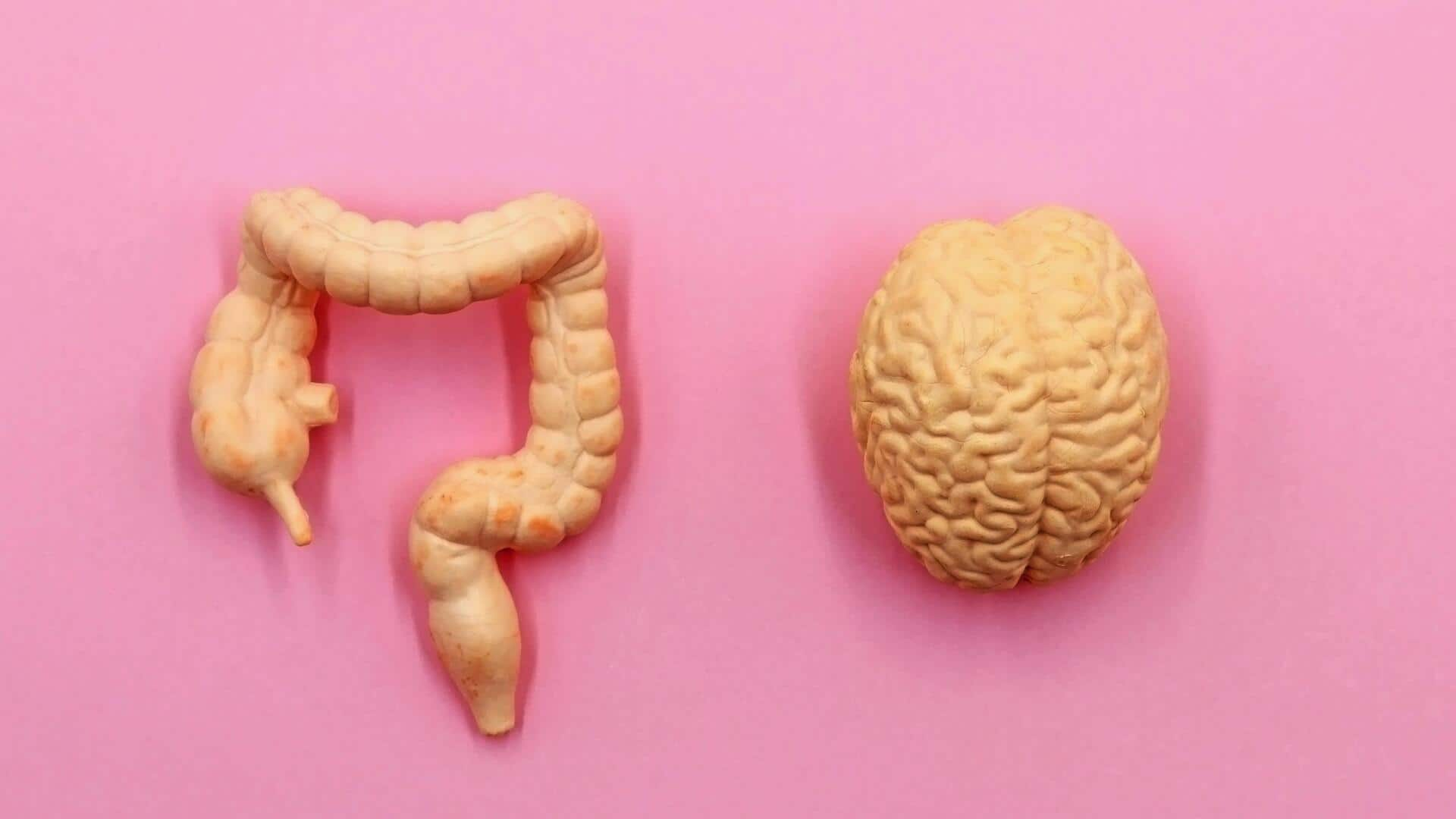
The brain-gut relationship: How it works and affects our health
What's the story
Have you ever encountered digestive discomfort during anxious moments, often referred to as "butterflies in the stomach"? Likewise, have you experienced your mental health going for a toss when extreme hunger ('hangry') or overindulgence (overeating) strikes? Well, that's because the human brain and gut are connected. Functional nutritionist Mugdha Pradhan, CEO and founder of iThrive, explains more in this regard.
Relationship
The mind and the brain are two different entities: Pradhan
Most of us often confuse the mind with the brain. However, Pradhan reveals that the two are different. She explains that the mind is "an intangible entity that is shaped by our physical body and the experiences that it goes through." The brain, on the other hand, "is the key physical structure that controls our mind, our thoughts, emotions and actions."
Information
Now let's understand what gut actually means
Gut is defined as a group of organs including mouth, esophagus, stomach, small intestine, large intestine, and rectum. They regulate digestion, absorb nutrients, and expel the waste out of the human system.
Control
Not just the brain, even the gut controls the mind
The functional nutritionist further tells NewsBytes that besides the brain, even the gut wields significant control over the mind. "We see the evidence for it in our practice too, individuals with gut issues have a very high likelihood of mental health issues ranging from general irritability, agitation, anxiety, and depression to more serious conditions like dementia and Parkinson's as well," she shares with us.
Evidence
'There's data to show the connection between brain and gut'
Besides sharing her experience, Pradhan mentions, "There's a lot of data to show the relationship between the gut microbiome and cognitive function, memory, depression, and anxiety, and how stress can cause inflammatory reactions in the gut." She also says that the gut-brain axis is very strongly demonstrated in medical literature and is reflected in clinical data analysis across the globe as well.
Connection
How are the brain and the gut connected?
According to Healthline, neurons which are the cells found in the brain, are also present in the gut. "There are approximately 100 billion neurons in the brain," while "your gut contains 500 million neurons." Additionally, the vagus nerve is the biggest nerve connecting the brain and the gut. They are also connected through chemicals called neurotransmitters. The gut-brain axis is also connected with immunity.
Working
Here's how the brain-gut connection impacts the overall health
"It works both ways—conversely, mental health disturbances and emotional trauma can negatively affect gut function and create gut disorders like IBS as well," shares Pradhan. Anger and anxiety can trigger digestive issues, while happiness and peace can induce smooth functioning. "Treatment of gut dysbiosis and leaky gut can reverse mental health issues, psychotherapy, and lifestyle changes can help reverse gut issues," she concludes.